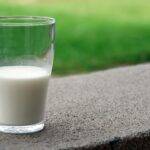Weight loss is a goal for many people, but it can be difficult to understand the science behind it. This article provides an overview of the key concepts related to weight loss, including the role of nutrition, physical activity, and metabolism. We’ll also discuss the importance of setting realistic goals and maintaining a healthy lifestyle. With the right information and support, you can make informed decisions to reach your weight loss goals.
The Role of Calories in Weight Loss
Calories play a major role in weight loss. A calorie is a unit of energy that is used to measure the amount of energy that is stored in food. When we eat food, the calories in the food are converted into energy and used by our bodies.
When it comes to weight loss, calories are essential. To lose weight, you must create a calorie deficit, which means that you must burn more calories than you consume. This can be done by eating fewer calories or by increasing your physical activity.
When you eat fewer calories than you burn, your body is forced to use stored energy, such as fat, to make up the difference. This is how weight loss occurs.
In order to create a calorie deficit, you must be aware of how many calories you are consuming. This means that you must pay attention to what you eat and how much you eat. You should also be aware of the number of calories you are burning through physical activity.
It is important to note that calories are not the only factor in weight loss. Other factors, such as genetics, hormones, and lifestyle, can also play a role. However, calories are the primary factor in weight loss and should be taken into consideration when trying to lose weight.
In order to lose weight, you must create a calorie deficit by eating fewer calories and increasing your physical activity. This can be done by eating a balanced diet that is low in calories and high in nutrients, as well as by increasing your physical activity. By doing this, you can create a calorie deficit and lose weight.
Exploring the Benefits of Exercise for Weight Loss
Exercise is one of the most effective tools for weight loss and improved health. Regular physical activity helps to burn calories, build muscle, and improve overall health. Exercise can also help to reduce stress, improve mood, and increase energy levels.
The benefits of exercise for weight loss are well-documented. Regular physical activity helps to increase the number of calories burned each day, which can lead to weight loss. Exercise can also help to increase muscle mass, which helps to burn more calories even when the body is at rest. Additionally, exercise can help to reduce stress, which can lead to improved mental health and reduced cravings for unhealthy foods.
In addition to helping with weight loss, exercise can also help to improve overall health. Regular physical activity can help to reduce the risk of heart disease, stroke, and diabetes. Exercise can also help to reduce the risk of certain types of cancer, such as colon and breast cancer. Additionally, exercise can help to improve bone density, which can reduce the risk of osteoporosis.
When it comes to weight loss, it is important to remember that exercise should be combined with a healthy diet. Eating a balanced diet that is low in calories and high in nutrients is essential for weight loss. Additionally, it is important to get enough sleep and manage stress levels in order to maintain a healthy weight.
Exercise is an important part of any weight loss plan. Regular physical activity can help to burn calories, build muscle, and improve overall health. Additionally, exercise can help to reduce stress, improve mood, and increase energy levels. By combining exercise with a healthy diet and lifestyle, it is possible to achieve long-term weight loss and improved health.
Understanding Macronutrients and Their Impact on Weight Loss
Macronutrients are the three major nutrients that provide the body with energy: carbohydrates, proteins, and fats. These nutrients are essential for proper body functioning and for maintaining a healthy weight.
Carbohydrates are the body’s main source of energy and are found in a variety of foods such as bread, pasta, rice, potatoes, fruits, and vegetables. Carbohydrates are broken down into glucose, which is then used by the body for energy. Eating too many carbohydrates can lead to weight gain, as the body stores excess glucose as fat.
Proteins are the building blocks of the body and are found in foods such as meat, fish, eggs, dairy, and legumes. Proteins are essential for muscle growth and repair, and for the production of hormones and enzymes. Eating too much protein can lead to weight gain, as the body stores excess protein as fat.
Fats are essential for the absorption of vitamins and minerals, and for providing the body with energy. Fats are found in foods such as nuts, seeds, avocados, olive oil, and butter. Eating too much fat can lead to weight gain, as the body stores excess fat as fat.
When it comes to weight loss, it is important to understand the role that macronutrients play. Eating a balanced diet that includes all three macronutrients is essential for weight loss. Eating too much of any one macronutrient can lead to weight gain, as the body stores excess calories as fat.
It is also important to understand the different types of macronutrients and how they affect the body. For example, complex carbohydrates are broken down slowly and provide the body with sustained energy, while simple carbohydrates are broken down quickly and can cause a spike in blood sugar levels. Eating a diet that is rich in complex carbohydrates and low in simple carbohydrates can help to promote weight loss.
Finally, it is important to remember that weight loss is not just about calories. Eating a balanced diet that includes all three macronutrients is essential for weight loss. Eating too much of any one macronutrient can lead to weight gain, as the body stores excess calories as fat. Understanding macronutrients and their impact on weight loss can help you to make informed decisions about your diet and to reach your weight loss goals.
The Impact of Stress on Weight Loss
Stress is an unavoidable part of life, and it can have a major impact on our health, including our weight. Stress can lead to weight gain, as well as make it more difficult to lose weight. Understanding the impact of stress on weight loss can help you manage your stress levels and achieve your weight loss goals.
When we experience stress, our bodies release the hormone cortisol. Cortisol is responsible for triggering the body’s “fight or flight” response, which prepares us to either confront or flee from a perceived threat. This response causes the body to release glucose, which provides us with a burst of energy. This energy is often used to confront the stressor, but if it is not used, it can be stored as fat.
Stress can also lead to unhealthy eating habits. When we are stressed, we often turn to comfort foods, such as sugary snacks and fast food, which can be high in calories and low in nutritional value. Eating these types of foods can lead to weight gain and make it more difficult to lose weight.
Stress can also make it more difficult to exercise. When we are stressed, we often lack the motivation and energy to exercise, which can make it harder to lose weight.
Finally, stress can make it more difficult to stick to a healthy diet. When we are stressed, we often lack the focus and discipline to stick to a healthy eating plan, which can make it harder to lose weight.
Managing stress is an important part of any weight loss plan. There are many ways to manage stress, such as exercise, meditation, and spending time with friends and family. Finding healthy ways to cope with stress can help you reach your weight loss goals.
The Role of Genetics in Weight Loss
Weight loss is a complex process that involves many factors, including genetics. Genetics plays a significant role in weight loss and is often the deciding factor in how successful an individual will be in their weight loss journey.
Genetics can influence a person’s body type, which in turn affects how much weight they can lose. People with a naturally slender frame may find it easier to lose weight than those with a more muscular or stocky build. Additionally, genetics can influence a person’s metabolism, which is the rate at which their body burns calories. People with a slower metabolism may find it more difficult to lose weight than those with a faster metabolism.
Genetics can also affect how a person responds to different types of exercise and diet. Some people may find that certain exercises are more effective for them than others, while others may find that certain types of diets are more successful for them than others. Genetics can also influence how quickly a person’s body responds to exercise and diet changes.
Finally, genetics can influence how quickly a person is able to reach their weight loss goals. Some people may find that they are able to lose weight quickly, while others may find that it takes them longer to reach their goals.
Ultimately, genetics plays a significant role in weight loss. It is important to understand how genetics can influence a person’s weight loss journey so that they can make the necessary adjustments to their lifestyle and diet to reach their goals.
In conclusion, understanding the science behind weight loss is essential for achieving and maintaining a healthy weight. By understanding the principles of energy balance, thermogenesis, and metabolism, you can create a diet and exercise plan that is tailored to your individual needs. Additionally, it is important to be aware of the potential risks associated with rapid weight loss and to consult with a healthcare professional before beginning any diet or exercise program. With the right knowledge and support, you can successfully reach your weight loss goals.
Excerpt
Weight loss is a complex process that involves many factors. Understanding the science behind it can help you create a plan that works for you. It involves understanding the role of calories, hormones, metabolism, and physical activity in weight loss. With this knowledge, you can create an effective and sustainable weight loss plan.





















